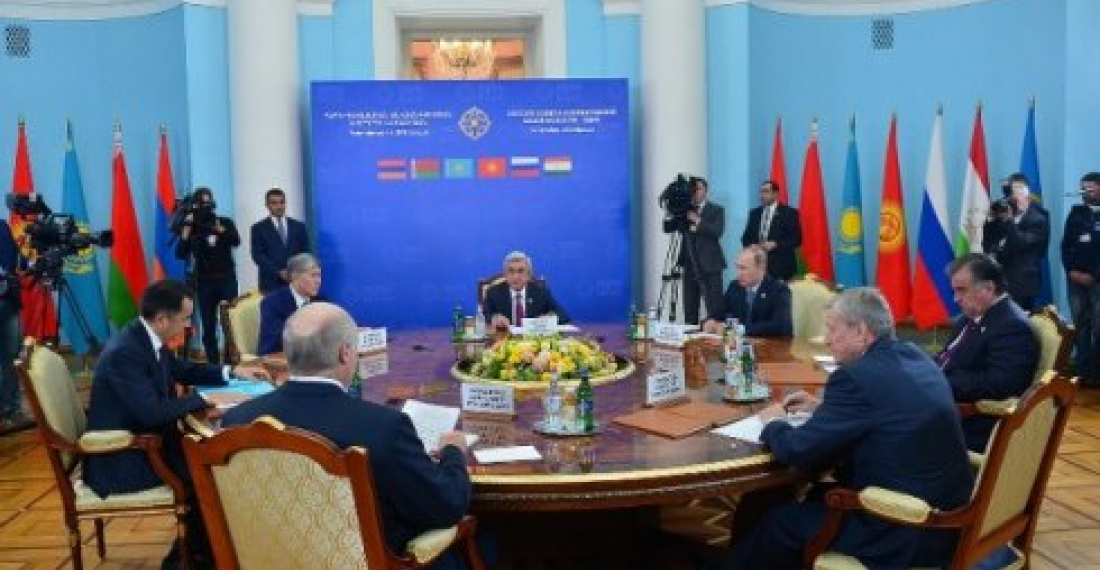President Putin is in Yerevan where he is attending a meeting of the heads of State of the Collective Security Treaty Organisation (CSTO), a Russian led military alliance of several former Soviet republics. The meeting was opened by Armenian president Serzh Sargsyan.
The meeting was overshadowed by the absence of the Kazakh President Nursultan Nazarbayev who cancelled his participation at the last minute due to ill health.
Earlier, an aide to president Putin, Yuri Ushakov had indicated that the summit would adopt a text on the Nagorno-Karabakh conflict. But subsequently Kremlin spokesperson Dimitri Peskov said when asked, "No, not today".
The other three members of the CSTO are Tadjikistan , Kyrgystan and Belarus
source: commonspace.eu
photo: The opening session of the meeting of the CSTO heads of state in Yerevan on 14 October 2016 (picture courtesy of the press service of the president of Armenia)






